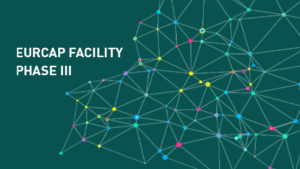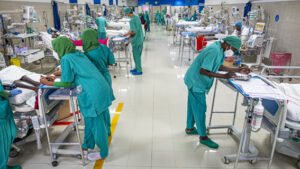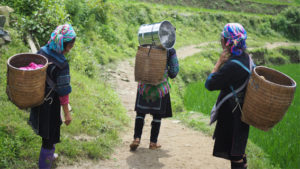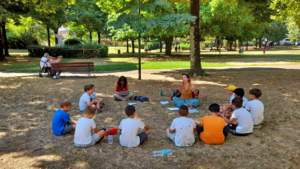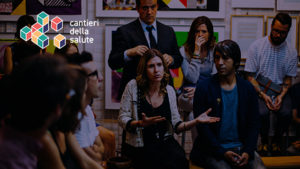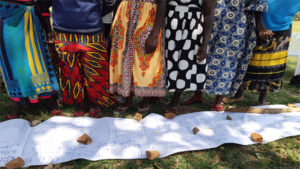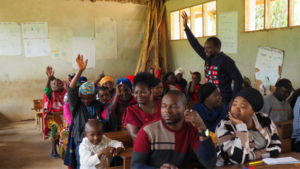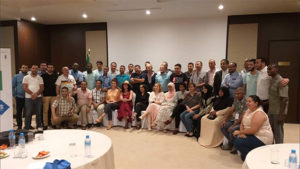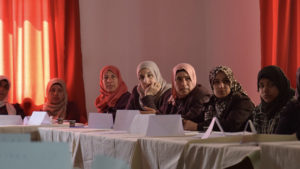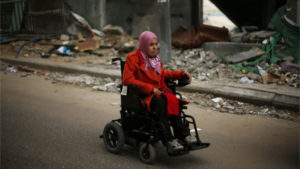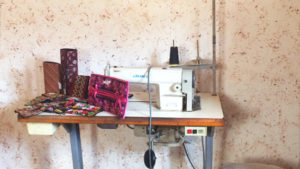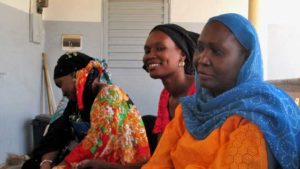Nothing About Us Without Us: Emancipatory Research and Strategic Plan on disability in Palestine
Title Nothing About Us Without Us – NAUWU Niente su di noi senza di noi
Location West Bank and Gaza Strip, Palestine
Duration 3 anni
Project Leader EducAid
Partners Palestinian Ministry of Education and Higher Education (MEHE), and the Ministry of Labor, EducAid, Ahlya University, An-Najah University, Bethlehem University (BU), Birzeit University, CDS Centre for Development Studies, Rete Italiana Disabilità e Sviluppo
OPDs involved GUPWD – local branch of Beit Sahour, Stars of Hope in Ramallah and Aswat in Nablus
Funding Agenzia Italiana per la Cooperazione allo Sviluppo – AICS
Context
In Palestine, persons with disabilities represent one of the most vulnerable social groups: they face extreme difficulties in their daily lives, are excluded from the enjoyment of their rights and are subject to severe discrimination.
According to the latest data updated by PCBS in 2017 87.3% of persons with disabilities in Palestine were unemployed and 53.1% were illiterate. The Independent Human Rights Commission points out that students with disabilities constitute only 0.3% of the total number of Palestinian students due to the poor accessibility of schools and the lack of inclusive education methodologies. According to the ILO (International Labour Organisation), the lack of inclusion of persons with disabilities in the labour market causes a loss of GDP of 3 to 7 per cent. People with disabilities, and especially women, face strong discrimination and social stigma.
Regarding Organisations of Persons with Disabilities (OPDs), the baseline conducted by EducAid in 2015 shows that these organisations suffer from a low level of both management and intervention capacity. A condition that limits their effectiveness in promoting the rights of persons with disabilities and the recognition of their role as key actors in this sense.
For all these reasons, although progress has been made in promoting the rights of persons with disabilities in Palestine, it remains important to strengthen local OPDs and their capacity to advocate for the rights of Palestinian persons with disabilities in order to achieve profound and lasting results.
A full adoption of the bio-psycho-social approach to disability (instead of the medical-assistance approach is still widespread) would allow for a full recognition of these organisations as key actors in the promotion of the rights of persons with disabilities. This in turn would improve collaboration between OPDs and the provision of human and financial resources in order to carry out fundraising, evaluation and data collection, lobbying and advocacy.
General Objective
The Inclusive Development Unit carried out 4 Emancipatory Researches with a double objective. Firstly, to deepen the knowledge on the inclusion of persons with disabilities with a focus on access to education, vocational training and employment through the identification of barriers and facilitators to the autonomy of PcD as well as mechanisms that perpetuate forms of discrimination and isolation. The research has produced interesting results and policy recommendations that will feed into the construction of an Operational Strategic Plan for the Movement of People with Disabilities, the construction of which is one of the subsequent activities of the project.
The second objective of the Emancipatory Research took the form of what represents the greatest success of a project of this kind, namely the promotion and strengthening of the empowerment of the persons with disabilities who participated in the research. The latter, trained and guided by disability experts and researchers from local universities, actively participated in each phase of the research, from the creation of data collection tools, to the administration of interviews and questionnaires, up to the analysis and drafting of the final report, representing a success in the application of the Emancipatory Research methodology, and becoming promoters of the collection of knowledge on the conditions and rights of persons with disabilities in Palestine through self-empowerment actions.
The final objective of this work was to develop, through close cooperation between activists and disability experts, recommendations for policy actions in the field of disability, both in terms of a civil society organization (CSO) action plan and as a contribution to the identification of new long term policies at national and local levels.
Our contribution
The four Emancipatory Research studies were conducted in collaboration with disability experts (including OPDs) and university researchers from Birzeit Bethlehem and Al Najah Universities.
The four studies differ in terms of data collection methodology, sample size and research hypotheses, but all fit into the theoretical framework of the UNCRPD, apply the Emancipatory Research approach and experienced the same seven-step process: training, elaboration of the research protocol, development of the instruments and sample size, piloting, data collection (both quantitative and qualitative), data analysis and reporting.
The Inclusive Development Unit also accompanied the OPDs and disability experts in the activity of building the Strategic Operational Plan for the Movement of People with Disabilities Organisations through a multi-session training process aimed at, among other things, strengthening the capacities and skills of OPD members in planning interventions in the field of disability in Palestine, as well as strengthening the internal coordination and management of individual OPDs and the Movement itself.
The Emancipatory Researches constitute the theoretical basis for the contents of the Strategic Plan that will be enriched also by the results and outputs of the training sessions. The final objective of the plan’s construction activity is to put the OPDs in a position to adopt joint advocacy initiatives to facilitate the work and school inclusion of people with disabilities and to identify specific intervention for future planning to be carried out in a participatory and shared manner.
Although OPDs remain distinct entities, thanks to the Strategic Plan, they may be able to recognise themselves as part of a single movement.
To know more, read o download the report below
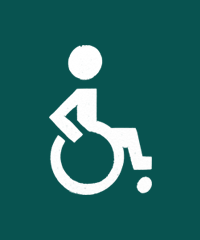 Emancipatory Research, empowering social groups at risk of marginalization
Emancipatory Research, empowering social groups at risk of marginalization
Read more on our Inclusive Development Unit




